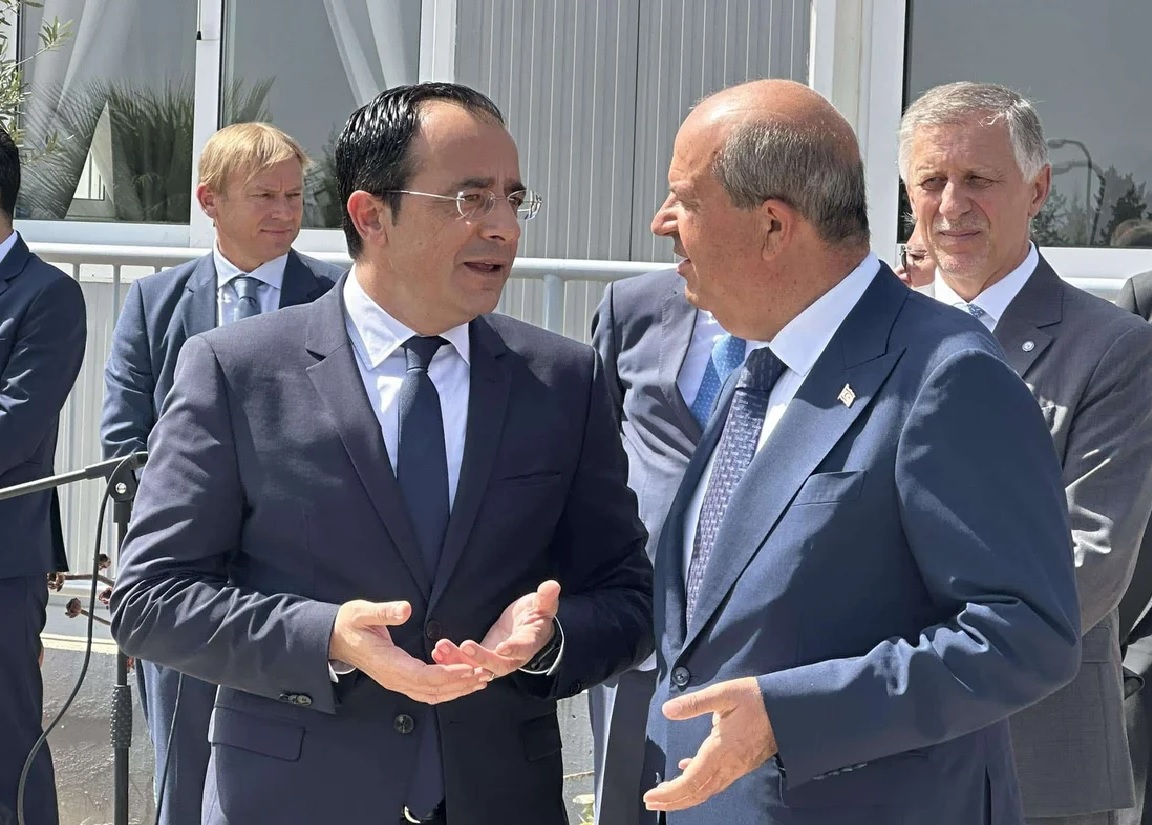Selective amnesia on both sides keeps Cyprus trapped at the cliff’s edge; what is needed now is courage to step back, confront history honestly, and build a liveable federation for the future
By Professor Kerim M. Munir
Reading the September 24 Cyprus Mail article by Rebekah Gregoriades — “Christodoulides hits back at Turkey at the UN” — I was struck less by the predictable duelling rhetoric than by the persistent amnesia it reveals.
The president’s speech, in its emphasis on 1974, illustrates what I have called the amnestic syndrome: a selective memory disorder that has plagued both communities for half a century.
For Greek Cypriots, history begins with the Turkish invasion of 1974, with little appetite to confront the chain of events from 1963 onwards — the breakdown of the Zurich–London constitution, intercommunal violence, and the 1974 Athens junta coup.
For Turkish Cypriots, by contrast, 1974 is remembered as salvation, with scant acknowledgment of Greek Cypriot displacement and trauma and changing landscapes that increasingly reflect the economic, cultural, and political imprint of Turkey, sometimes at the expense of the island’s shared Cypriot identity.
This dual amnesia that is now entrenched serves neither truth nor reconciliation. It inflates victimhood, deflates empathy, and ensures that neither community can recognise itself in the mirror the other holds up. The September 24 Cyprus Mail article by Tom Cleaver, quoting Ersin Tatar as saying he ‘does not expect much” from the New York meeting, is another illustration of this tragic dynamic. On one side, Christodoulides invokes international law with selective memory; on the other, Tatar insists on sovereign equality and recognition as preconditions. Both sides are grandstanding to their domestic audiences. Each reinforces their self-made precipices rather than stepping back from it. Without a shared memory, there can be no shared future.
It is in this sense that the President Christodoulides’ metaphor of standing “at the brink of a precipice” in the face of “drastic, unpredictable geopolitical shifts” struck me as unintentionally apt for Cyprus. My late teacher, Sir Jonathan Miller, the British physician, theatre director, and public intellectual, once remarked in a lecture delivered at University College London that standing at a precipice is rarely the problem — the real tragedy is when you actually hold the hands of innocent children at the edge, urging them to jump with you into an abyss of inherited suicidal grievances. Imagine Cypriot children, some dressed in blue, some in red, others draped in a flag of an island they only partially know, awaiting their parents’ leap of faith — but into what? Nostalgia? Slogan? Amnesia?
The temptation for politicians in moments of geopolitical theatre is to play Alexander the Great at Gordium — dramatically cutting through the knot rather than patiently untying it. But Cyprus is no Gordian Knot. It is closer to an Aristophanic satire — audacious speeches masking deeper inaction, a dialogue of mutual irony with little comic relief. President Christodoulides’ sword cannot slice through this puzzle, any more than President Erdoğan’s or Tatar’s audacious counter-speeches can. These approaches detract, and neither untangle.
What is needed is not grand metaphor but practical compromise. The Bizonal, Bicommunal Federation (BBF), long enshrined in UN resolutions, is imperfect but remains the only rational and internationally endorsed framework. Yet a new version, BBF 2.0, must be more than acronym. It must begin with a declaration of unequivocal commitment to peace in Cyprus. Any solution must weave Turkey’s guarantor role into a dual-layer system — reduced, internationally verified, and embedded in collective mechanisms, so that Turkish Cypriots feel safe and Greek Cypriots feel sovereign. It must create joint task forces in security starting with liaison, evolving to bi-communal cooperation as trust grows. And it must deliver confidence-building measuresnow: Varosha under UN administration, expanded Green Line trade, and shared benefits from Cyprus’s offshore energy.
Is the policy of the Cyprus government to appease those who still believe in any acceptable version of BBF, or is it to pretend we can return to a mythical status quo ante — born of amnesia and nurtured by misbelief? The former is rational, the latter tragic. As I noted in my article on 17 August the Time for Courage is Now: A New Vision for Cyprus Beyond Division. What emerges is a deficit in political courage. Courage to accept that history does not begin in 1974. Courage to accept that both communities bled, both were displaced, both lived in fear. Courage to build a federation that is not maximalist but liveable.
The President is right: the world stands at a precipice. But surely, in Cyprus, it is a self-made precipice as exemplified by rhetoric delivered, of all places, at the UN Assembly. The greater courage is not to dramatize it but to step back, to acknowledge our selective amnesia, and to lead our children away from the precipice rather than into the void.
Professor Kerim M Munir, Harvard Medical School, Boston, Massachusetts; Former graduate of The English School, Nicosia. This piece is offered as both a personal reflection and a civic appeal.






Click here to change your cookie preferences